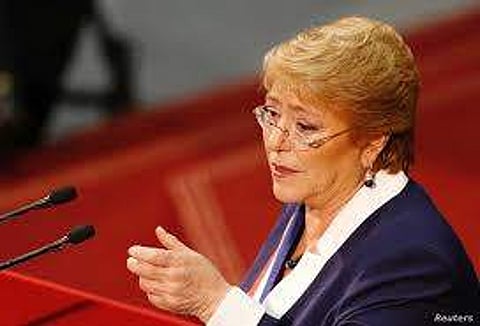

The UN's top human rights official has said that the protests in the US triggered by the custodial killing of George Floyd highlighted "police violence" against people of colour and the voices calling for an end to the endemic and structural racism that blights the American society need to be heard.
UN High Commissioner for Human Rights Michelle Bachelet said on Wednesday that the grievances at the heart of the protests that have erupted in hundreds of US cities following the death of 46-year-old African-American Floyd need to be heard and addressed if the country is to move on from its tragic history of racism and violence.
"The voices calling for an end to the killings of unarmed African Americans need to be heard. The voices calling for an end to police violence need to be heard. And the voices calling for an end to the endemic and structural racism that blights US society need to be heard," Bachelet said. She stressed that while structural racism and police violence are found across the world, the anger we have seen in the US, erupting as COVID-19 exposes glaring inequalities in society, shows why far-reaching reforms and inclusive dialogue are needed there to break the cycle of impunity for unlawful killings by police and racial bias in policing. This virus is exposing endemic inequalities that have too long been ignored.
In the United States, protests triggered by the killing of George Floyd are highlighting not only police violence against people of colour, but also inequalities in health, education, employment and endemic racial discrimination, she said. Over the past week, protests and demonstrations have erupted across the US over the killing of Floyd, who died in Minneapolis last week after a white police officer knelt on his neck for more than eight minutes, causing his death while in police custody.
Despite concerns over spread of the coronavirus infection, tens of thousands of demonstrators took to the streets in more than 300 US cities, as well as other large urban centres around the world, to take part in mostly peaceful protests calling for racial justice. Bachelet said a country's leaders need to condemn racism unequivocally at all times but especially during a crisis and they should reflect on what has driven people to boiling point; to listen and learn and to take actions that truly tackle inequalities. The protests prompted city and state officials in many US states to impose curfews and activate the National Guard in many areas.
The UN Human Rights Office noted that there have been unnecessary and disproportionate use of force by law enforcement officers, including indiscriminate and improper use of less-lethal weapons and ammunition. Tear gas has been used to disperse peaceful demonstrators and rubber bullets and pepper balls have been fired at demonstrators and journalists who did not pose an imminent threat of serious injury, the UN body said.
The Human Rights chief also voiced concern over hundreds of incidents of journalists covering the protests being physically attacked, intimidated or arbitrarily arrested, despite their press credentials being clearly visible. "What has been happening is an unprecedented assault on journalists. In some cases they have been attacked or even arrested while on air. It is all the more shocking given that freedom of expression and of the media are fundamental principles in the US, central to the country's identity," Bachelet said, calling on authorities at all levels to ensure the message is clearly understood reporters must be able to do their important work free from attacks or repression.
aid.
